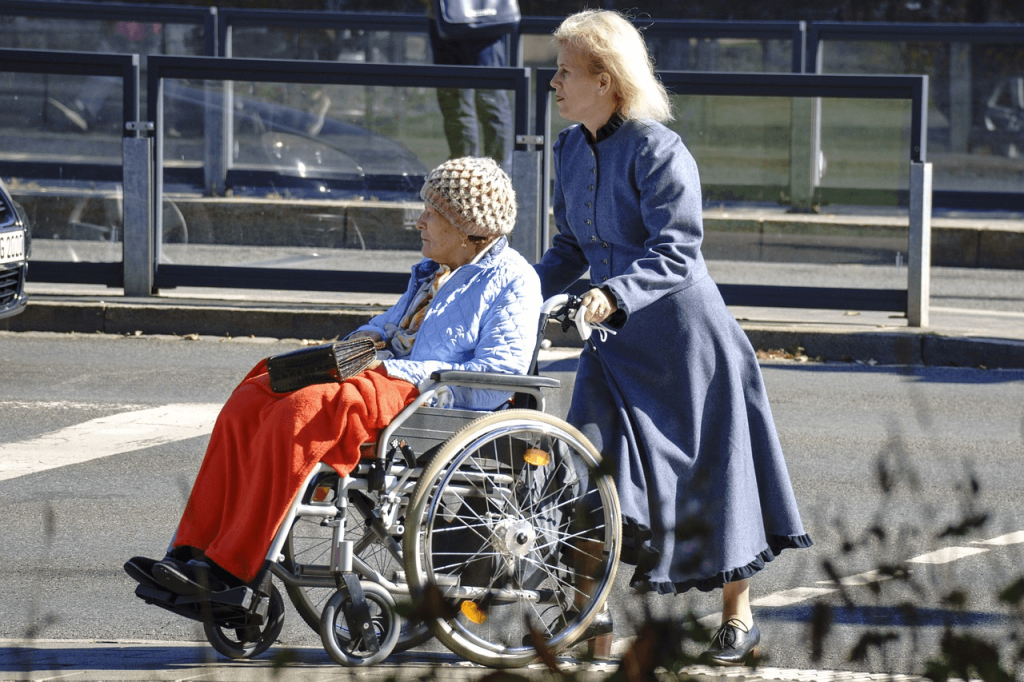According to alzheimers.gov, millions of people in the US take care of friends and family suffering from Alzheimer’s.
Caring for a loved one with Alzheimer’s or related dementia is a noble and often challenging role. We understand the unique demands and responsibilities that come with this role. Whether you’re providing care in person or from afar, our goal is to equip you with the knowledge and tips you need to provide the best support and improve the quality of life for your loved one.
Practical Tips for Dementia Caregivers
Provide Everyday Care
- Establishing a Routine: Early in the progression of Alzheimer’s and related dementias, individuals may experience cognitive changes affecting daily life. To help maintain a sense of normalcy, establish a daily routine for activities such as bathing, dressing, and mealtime. Consistency can provide comfort and reduce anxiety.
- Keeping Track of Tasks: Encourage your loved one to maintain a diary or calendar to record daily tasks, appointments, and events. These innovative technologies for dementia caregivers aids in memory retention and organization.
- Engaging in Enjoyable Activities: Plan activities that your loved one enjoys and schedule them at regular intervals. Engaging in familiar hobbies can bring joy and stimulate cognitive function.
- Medication Management: For those requiring regular medications, set up a reminder system to ensure they take their medications as prescribed. Consistency is key to managing their health effectively.
- Supporting Independence: While assisting with dressing and bathing, always allow your loved one to do as much as they can independently. Opt for comfortable, easy-to-use clothing and consider investing in a sturdy shower chair to enhance safety.
- Mealtime Matters: Create a consistent and familiar mealtime environment to minimize stress. Ensure adequate time for eating and be patient during meals.
Caregivers and Clinical Trials
Clinical trials can provide valuable resources and support for caregivers and individuals with dementia. Consider volunteering for these trials to access cutting-edge treatments and gain a better understanding of the condition.
Healthy & Active Lifestyle
- Promoting Health and Activity: Maintaining a healthy lifestyle is very important for individuals with dementia. Encourage various activities such as household chores, cooking, gardening, and exercise, adapted to their abilities.
- Music as Motivation: Incorporate music into activities to enhance motivation. Dancing to music, if possible, can be an enjoyable form of physical activity.
- Short Mini-Workouts: Recognize that multiple short bursts of activity may be more effective than a single long session.
- Shared Walks: Regular walks can benefit both the individual with dementia and the caregiver. Exercise is essential for your own well-being as well.
Home Safety
- Creating a Safe Environment: Safeguarding the home is crucial. Ensure there’s at least one handrail if you have stairs, and use safety grip strips or brightly colored tape to mark steps. Safeguard your home by inserting safety plugs into unused outlets and adding safety latches on cabinets.
- Declutter for Safety: Remove potential hazards like small rugs, electrical cords, and other tripping hazards. Maintain well-lit living spaces to improve visibility.
- Secure Hazardous Items: Store cleaning and household products, such as paint thinner and matches, securely or out of reach.
Changes in Communication & Behavior
- Effective Communication Strategies: Alzheimer’s and related dementias can impact communication and behavior. It’s crucial to communicate patiently and calmly, acknowledging their feelings and concerns. Encourage a two-way conversation as long as possible.
- Maintaining Familiarity: Surround your loved one with familiar objects and photographs to foster a sense of security.
- Distractive Activities: When verbal communication becomes challenging, consider engaging your loved one with activities like reading a familiar book or reminiscing through a photo album.
Taking Care of Yourself
- Seeking Support: Caring for someone with Alzheimer’s can be very stressful and overwhelming. Don’t hesitate to ask for help from family and friends or local support services.
- Prioritize Nutrition: Eating well is vital for your own health. Make sure you a balanced nutrition diet to take care of the patients and yourself as well. Nutrient-rich foods can boost your energy and well-being.
- Join Support Groups: Consider joining a caregiver’s support group, either in person or online. Connecting with others who share the same experiences can be incredibly comforting.
- Self-Care: Make time for yourself. Even small breaks, like enjoying a cup of tea or a chat with a friend, can alleviate stress.
- Stay Active: Engaging in regular physical activity, such as walks or yoga, can improve your physical and mental health.
- Meditation and Professional Help: Explore meditation as a method to reduce stress and anxiety. If needed, seek professional mental health support.
Planning for the Future
- Healthcare Directives: Prepare for the future by initiating discussions with your loved one about healthcare directives. Ensure you have permission to communicate with their doctors and lawyers when necessary.
- Legal and Financial Matters: Address legal and financial matters, in-home care options, and funeral arrangements in advance to minimize stress during difficult times.
- Educate Yourself: Understanding the progression of the disease can better prepare you for what to expect and how to adapt your caregiving approach.
Conclusion
Being an Alzheimer’s or dementia caregiver is a huge duty that may be draining on both your mental and physical health. You can create a comforting environment that improves the quality of life for both you and your loved one by heeding the advice and recommendations in this article. Keep in mind that you are not alone and asking for assistance and finding resources demonstrates strength. We can care for the people we love in the greatest way possible if we work together.
FAQs
Q. What should I do if a person with dementia becomes agitated or aggressive?
- Stay calm and redirect their attention to a calming activity.
- Avoid confrontations or arguments.
Q. Is there a cure for dementia?
Currently, there is no cure for most types of dementia. Treatment focuses on symptom management and support.
Q. Can I make dietary changes to support brain health in dementia?
Yes, a diet rich in omega-3 fatty acids and antioxidants may support brain health, but it won’t cure dementia.
Q. How can I find specialized dementia care services in my area?
Contact local Alzheimer’s or dementia associations for information on available services and resources.





